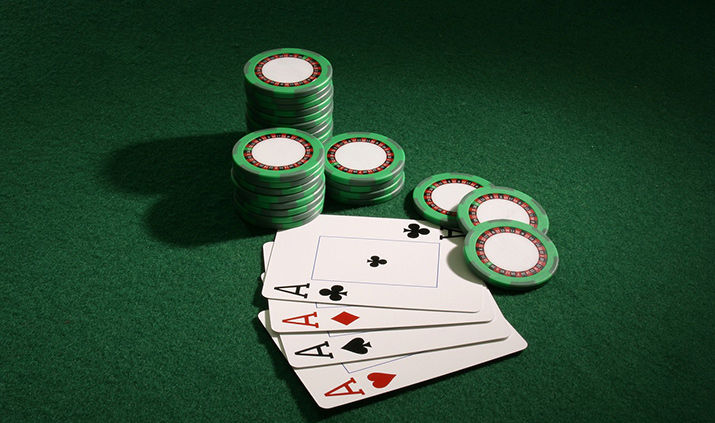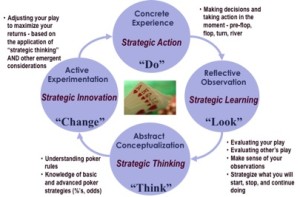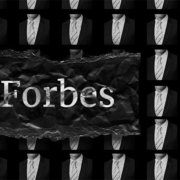Poker & Strategic Planning: Lessons From the Felt
No-limit hold’em poker is a passion of mine, an obsession if you ask my wife! When I’m playing poker time flies, I get lost in the flow of the game – reading the table, observing patterns, enjoying the energy of the conversations, and picking my spots to play. Poker is a game of continual growth and learning – if you’re not learning, you’re losing! After more than 15 years of playing, I’ve learned a number of lessons that have broad implications for business and, more specifically, strategy implementation.
There’s a reason why many of the same faces keep showing up at the final table in the World Poker Tour, and it has nothing to do with luck.
A lot of people assume that poker is a game of chance and luck. And while luck does help, it is far more a game of skill. Each hand can be improved upon by using the community cards, your poker knowledge/skills, and the ability to adapt your play. The same capacities that make one successful at poker can also help unleash a “strategy culture,” elevating organization’s ability to decide, learn, think, and innovate – strategically.
Four Strategic Capacities
- Strategic Action and Decision-making
- Strategic Learning and Reflection
- Strategic Thinking
- Strategic Innovation and Improvement
1. Strategic Action and Decision-making
In poker you have a limited time to make your move. At each point along the way (pre-flop, on the flop, on the turn, and on the river) you must make decisions and take action – whether to fold, check, bet, raise, call, or go all in!
The same is true when it comes to implementing your strategy; analysis paralysis will not get you very far. The stronger people’s capacity to make strategic decisions day-to-day, the more successful they will be. See HBR’s Stop Making Plans, Start Making Decisions
2. Strategic Learning and Reflection
Just as it’s important to evaluate your play in poker (after a hand, a session, or a tournament), it is equally important to evaluate the success (organizationally) of action taken or a decision made. Questions like:
- How has “X move” positively influenced you, your team, division, strategy or company?
- What desired outcomes were achieved?
- How do you make sense of the impact of your actions AND what would you change moving forward?
- What innovations or improvements would take your play to the next level?
3. Strategic Thinking
In poker, strategic thinking means know the rules of poker and poker strategy (mathematical odds, pot odds, implied odds, reading others, etc.). Organizationally this means understanding strategically how each person (role) impact’s the organization’s success. By understanding the rules of the business/industry you are in, you can choose to A) maximize them for your organization’s advantage, B) play better than your competitors, or C) create new rules.
In “What Poker Taught Me About Business,” Tony Hseih, CEO of Zappos, shared the following:
“In a poker room, I could only choose which table I wanted to sit at. But in business, I realized that I didn’t have to sit at an existing table. I could define my own, or make the one that I was already at even bigger. (Or, just like in a poker room, I could always choose to change tables.)I realized that, whatever the vision was for any business, there was always a bigger vision that could make the table bigger.”
Strategic thinkers don’t just know their industry/market superbly well, they understand how to make new markets and discover Blue Oceans – thereby making the competition irrelevant!
4. Strategic Innovation and Improvement
One of the most important things you can do in poker is “switch gears” – changing your game and style of play to adapt to the emerging circumstances. The same is true when it comes to implementing your strategy. It is not a straight line from point A to point B; it is more of a cyclical pattern of experiments (and learning from those experiments) that catapults you from point A to point Z!
Poker, Strategy, and Experiential Learning Model
In overlaying the above four strategic capacities with the Kolb’s Experiential Learning Model, it was apparent that the lessons I learned from poker could be applied more systematically within a company.
Like poker, strategy isn’t just serendipitous luck. Unleashing a strategy culture requires intent in fine-tuning the very capacities that enable a strategic mindset, from an organization’s ability to take strategic action (regularly), to its willingness to pause and reflect, to learn from what’s working and what could be done differently the next time around. Apply strategic thinking and you’ve also learned to influence the rules of the game (or create new rules), and, most importantly, to use all of this knowledge to continually innovate your company’s way to success.
@TonySilbert










Nice job. I enjoyed reading while I sit here playing 2/5 at MDLive.